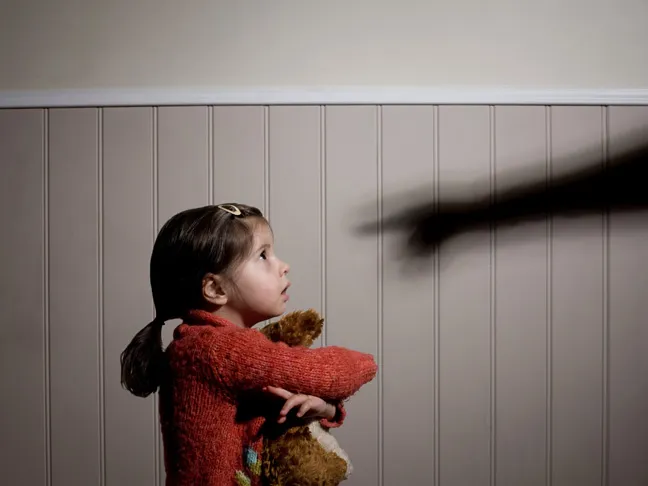By the power of intervention, some of these children did break the cycle. I don’t know where they are today or what happened once they aged out of the agency I worked for, but I do know that teachers, therapists, and others did provide a glimmer of hope for some of those kids. Sadly, many kids in similar situations don’t have access to the resources they need to escape dangerous environments that can impact their lives long term.
It is estimated that between 3.3 million and 10 million children witness domestic violence annually. One study of children and teens found that recent exposure to violence in the home was a significant factor in predicting a child’s violent behavior. Witnessing domestic violence can negatively affect children well into adulthood. Without the necessary help and services, children can repeat the cycle of violence as they grow.
And here’s the thing: There are risks to growing up in a violent home whether or not child abuse is a factor. It should be noted, however, that 40 to 60 percent of men who abuse women also abuse their children. In fact, a groundbreaking study on adverse childhood experiences (ACE), including child abuse and witnessing violence, found that children are at risk for a number of health and emotional problems down the line. Below are a few of the potential long-term consequences that children face when they grow up in violent homes.
1. They have aggressive and/or violent behavior. When kids witness violence over and over again, they internalize it as part of how people relate. The cycle continues because kids grow up thinking that violence is an appropriate coping strategy for stress, as well as mediating a disagreement.
2. They’re more likely to abuse drugs and alcohol. Kids who grow up around domestic violence exhibit higher levels of anger, hostility, and social withdrawal. They are also at risk for using alcohol and/or drugs to cope with the emotional pain of growing up in a violent home.
3. They are more susceptible to mental health issues. Children are likely to exhibit symptoms of PTSD in the immediate aftermath of violent events, including physical complaints, loss of attention, sleep disturbance, nightmares, and bedwetting. They are also at greater risk for anxiety and depression in adulthood.
4. They’re more likely to have suicidal thoughts. People who grow up in violent homes feel powerless. They also experience feelings of guilt and shame, because they were unable to help stop the violence. This can contribute to symptoms of depression and increase the risk of suicidal thoughts and plans as a means of escape.
5. They’re more likely to have serious physical health problems. In addition to substance abuse, children who endure adverse childhood experiences, such as violence, are at risk for heart disease, autoimmune disorders, and cancer.
6. They’re at risk for learning problems. Worrying about personal safety or the safety of a parent or sibling and being awakened at night due to violence can affect a child’s ability to do well in school. They are at risk for truancy, dropping out, and poor grades, all of which can affect their chances of future success.
7. They have trouble bonding with others. Children first learn how to relate to others from watching their parents. When parents become violent, children become distrustful and have difficulty bonding. This negatively impacts the family relationship as kids grow, but it also plays out in peer and romantic relationships in adulthood.
Although children who witness domestic violence might not show overt symptoms of distress, exposure to violence can be detrimental to a child in the moment and in the future. If you are involved in an abusive relationship, contact a local domestic violence program or call the National Domestic Violence Hotline (800-799-7233).
More Parenting Advice:
- Why Warm, Less Controlling Parents Raise Happier Kids
- 7 Signs Your Child Needs to See a Therapist
- Why Your ADHD Child Should Be Allowed to Move Around in School
Photo: Getty
